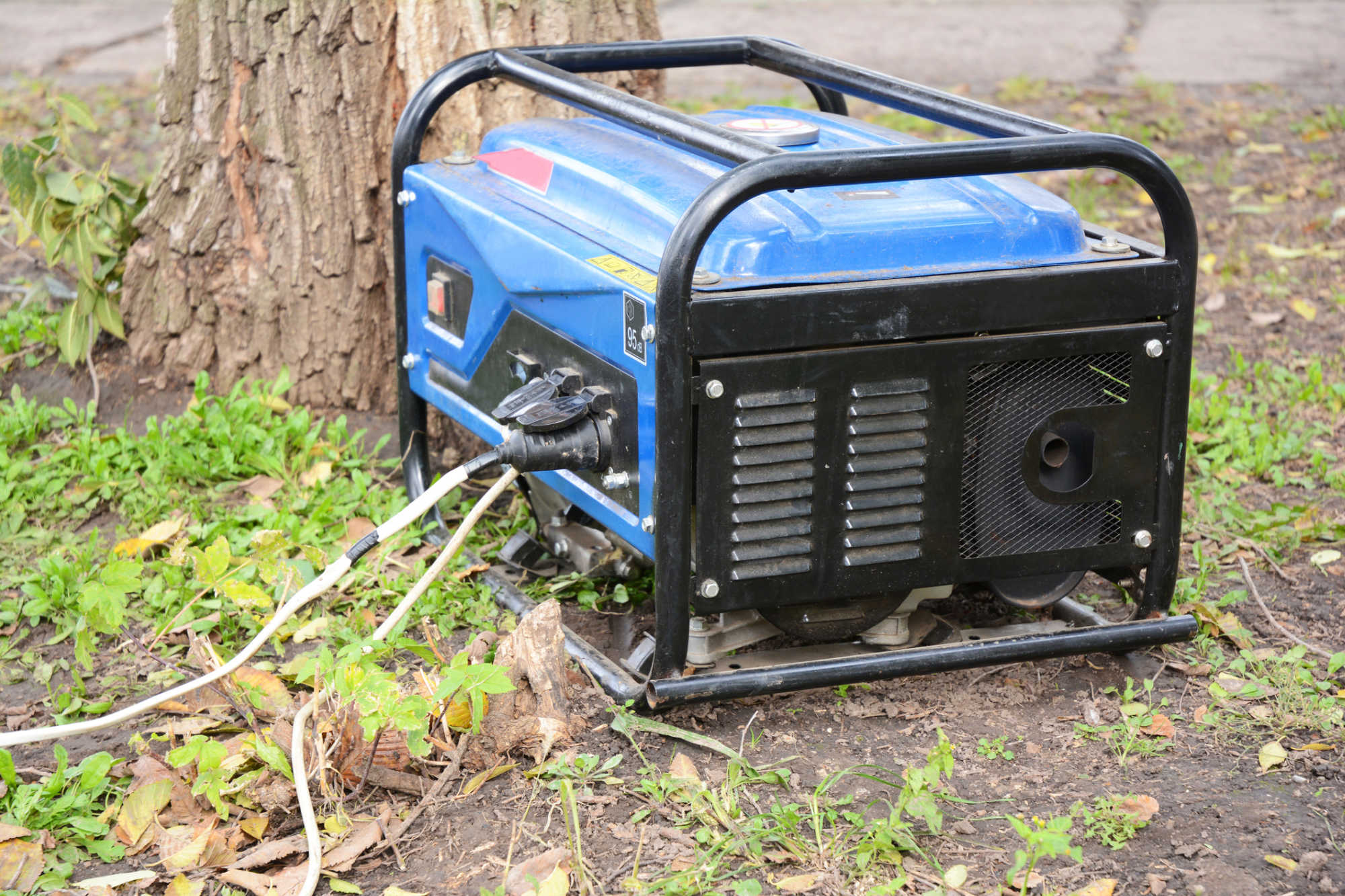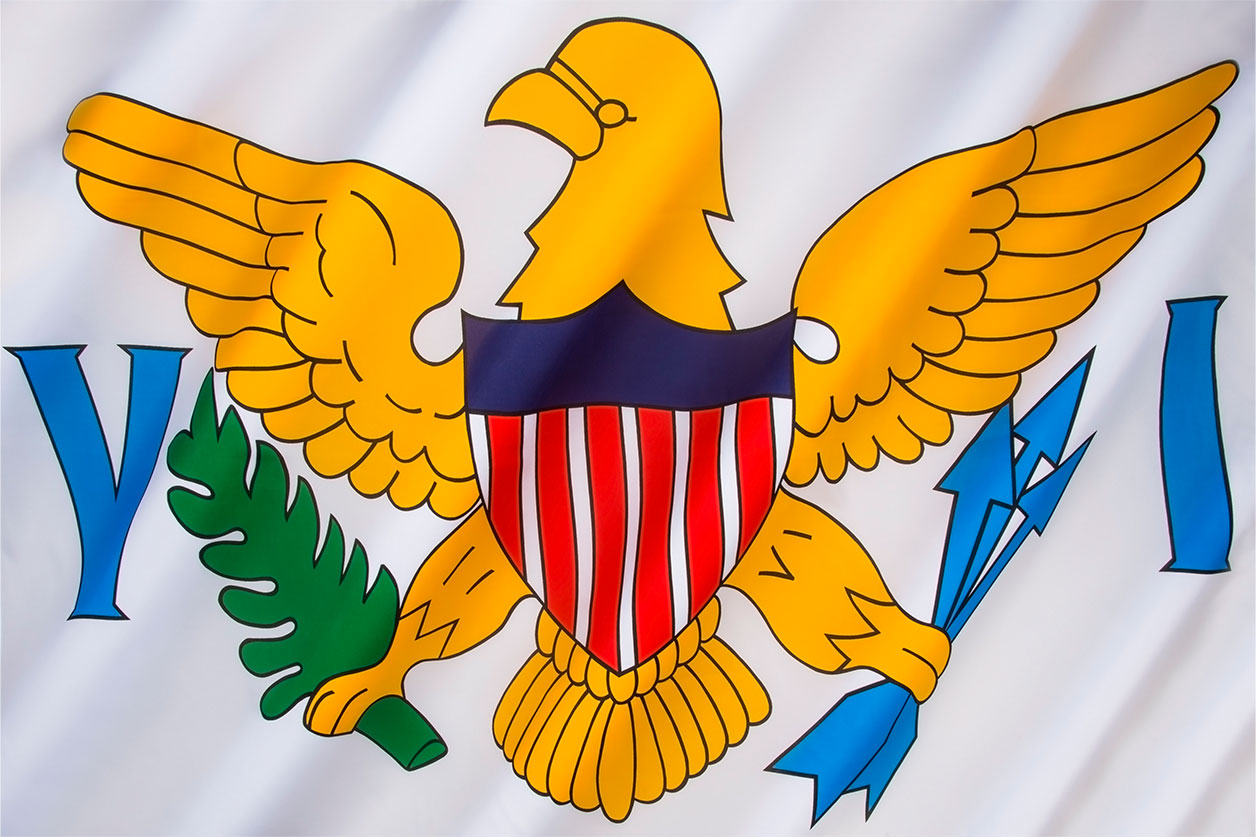USVI Community Pulse
Virgin Islands’ New Residential Generator Policy: Implications for Lower-Income Households

The Virgin Islands has unveiled a new policy, jointly endorsed by the V.I. Department of Planning and Natural Resources and the V.I. Police Department, which targets the use of residential generators. While aimed at curbing air and noise pollution, the policy’s finer details may inadvertently place a heavier financial weight on households with limited income.
There’s been an uptick in the adoption of emergency backup generators in the Virgin Islands, attributed mainly to the consistent disturbances from hurricanes, storms, and tropical depressions. This new policy, which intends to reduce harmful air emissions and control noise disturbance, specifies criteria for generator installation and operation. These stipulations may make generator ownership and operation financially challenging for households at the lower end of the income spectrum.
Per the policy’s framework, residential generators, whether portable or stationary, can be used during emergency scenarios like natural disaster-induced power outages or unforeseen deviations in voltage. They can also be operated for maintenance and tests, in alignment with the manufacturer’s guidelines. Yet, their operation is bound by several stringent conditions. This includes:
- Adhering to the manufacturer’s specified installation methods.
- Following the manufacturer-recommended maintenance schedule.
- Ensuring they are placed in well-ventilated zones, distant from windows and entrances.
- Full compliance with both local and federal standards for air and noise pollution.
There’s an added layer of oversight, where these generators will be subjected to inspections and tests by the Department of Planning and Natural Resources. The objective is to validate their alignment with air pollution norms and the Anti-Noise Ordinance – which mandates that the noise from such generators shouldn’t surpass 60 dBA. To put this in context, the majority of regular, open-framed portable generators emit sounds in the range of 69 to 80 dBA, contingent on their size and model.
Interestingly, the policy does provide a respite from permits as per the Virgin Islands Air Pollution Control Act Rules and Regulations. However, the emphasis on meticulous adherence to manufacturer guidelines could insinuate the need for expert installation and premium units. Consequently, for households already grappling with limited financial resources, these conditions could make generator acquisition and their suitable installation almost prohibitive.
The essence of this policy is to strike a harmonious balance between safeguarding public health and ensuring ambient comfort. Nonetheless, it might inadvertently lead to a scenario where socioeconomic factors determine who can secure this essential power backup during emergencies.
Virgin Islands’ residents should scrupulously scrutinize the policy’s intricacies and gauge its implications on their finances before investing in a new generator. This is not a mere advisory policy; non-compliance could invite punitive measures.
USVI Community Pulse
USVI’s Role in Caribbean Politics

The U.S. Virgin Islands (USVI) plays a pivotal role in Caribbean politics, balancing its unique position as both a U.S. territory and a Caribbean partner. Its political engagement in the region is characterized by active participation in regional organizations and collaborations aimed at addressing shared challenges, particularly through its relationship with the Caribbean Community (CARICOM).
In recent years, the USVI has deepened its ties with CARICOM, advancing beyond functional cooperation to pursue a technical cooperation agreement. This evolving partnership, formalized through a forthcoming Memorandum of Understanding (MOU), emphasizes economic development, sustainable energy, agriculture, and tourism, among other key areas. The USVI’s involvement with CARICOM also reflects a strategic commitment to regional integration, aiming to enhance food security, strengthen the blue economy, and promote innovation across various sectors.
A primary focus of USVI’s role in Caribbean politics is addressing the energy crisis through collaboration on sustainable solutions, building resilient infrastructure, and reducing costs. This commitment aligns with broader regional efforts to promote a sustainable “blue economy,” leveraging ocean resources for economic growth while preserving ecosystems. The USVI also seeks to expand agricultural initiatives, utilizing CARICOM’s expertise to boost food security and create economic opportunities.
Tourism remains another vital aspect of USVI’s engagement with its Caribbean neighbors. By focusing on niche areas like medical and sports tourism, the territory aims to bolster economic connections and draw visitors to the region. Moreover, technological investment to foster innovation and enhance digital infrastructure is seen as essential for the territory’s long-term growth. This includes facilitating intraregional trade and developing e-commerce opportunities.
The USVI’s geopolitical status as a U.S. territory adds complexity to its aspirations for deeper integration within CARICOM. Full membership in the organization is challenging due to its territorial status, which requires approval from the U.S. federal government. However, the USVI continues to make progress through technical cooperation, positioning itself as a significant partner in Caribbean political and economic affairs. These cooperative efforts are seen as stepping-stones toward greater integration, following the example of other associate members like Bermuda and the British Virgin Islands.
Overall, the USVI’s strategic role in Caribbean politics underscores its efforts to align with regional objectives while leveraging its unique position to contribute to shared goals in sustainability, economic development, and regional stability.
USVI Community Pulse
The Best Bookstores in the U.S. Virgin Islands

When visiting the U.S. Virgin Islands, it’s easy to be captivated by the pristine beaches, crystal-clear waters, and vibrant culture. Yet, beyond the scenic beauty, the islands also offer a rich literary scene for book lovers. Whether you’re in search of a travel guide, the latest bestseller, or a unique souvenir, the bookstores in the U.S. Virgin Islands have something to offer everyone. In this guide, we’ll explore the best bookstores across the territory, each with its own charm and appeal.
1. Undercover Books & Gifts (St. Croix)
Tucked away in Christiansted, Undercover Books & Gifts is a well-loved independent bookstore that caters to both locals and tourists. With a wide selection of books, including Caribbean literature, fiction, non-fiction, and children’s books, it’s a cozy spot where bookworms can browse for hours. The store often hosts book signings, readings, and other literary events, making it a community hub for literature lovers.
Visitors to St. Croix should also take advantage of the store’s range of unique gifts, greeting cards, and locally made items, making it an ideal stop for both reading material and memorable souvenirs.
2. The Caribbean Museum Center for the Arts Bookstore (St. Croix)
Located within the Caribbean Museum Center for the Arts in Frederiksted, this bookstore offers an enriching selection of books focused on Caribbean culture, history, and art. It’s the perfect place for those looking to dive deeper into the rich history of the Virgin Islands and the broader Caribbean. The selection extends to books by local authors and rare works, making it a must-visit for both tourists and locals who want to better understand the region’s cultural heritage.
3. Dockside Bookshop (St. Thomas)
As one of the longest-running bookstores in the Virgin Islands, Dockside Bookshop in St. Thomas has been serving the community since 1970. Located in the Havensight Shopping Mall, this independent bookstore has earned a reputation for its diverse collection, including fiction, non-fiction, biographies, travel guides, and cookbooks.
The store also offers a variety of books about the Virgin Islands, giving tourists a chance to learn about the islands’ rich history, ecology, and culture. Dockside Bookshop is known for its knowledgeable staff, who are always ready to offer recommendations and help you find the perfect book.
4. Newsstand Bookstore (St. Thomas)
Conveniently located in the heart of Charlotte Amalie, Newsstand Bookstore is a favorite among locals for its variety of reading materials. While the store focuses heavily on newspapers, magazines, and travel guides, it also offers a selection of novels and children’s books. Tourists often stop by to pick up something to read while lounging on the beach or during their flight back home.
In addition to its books, Newsstand Bookstore offers snacks, beverages, and basic travel necessities, making it a convenient one-stop shop for travelers on the go.
5. Little Switzerland’s Book Section (St. John)
While Little Switzerland is best known for its luxury jewelry and timepieces, its store in Cruz Bay, St. John, also features a small but carefully curated book section. Here, you can find high-quality coffee table books, many of which highlight the beauty of the Virgin Islands, as well as travel guides and photography books that capture the essence of the Caribbean.
This spot is perfect for those looking for a literary keepsake or a beautifully illustrated book to take back home as a reminder of their time in the U.S. Virgin Islands.
6. Papaya Cafe Bookstore (St. John)
For a more laid-back, island-inspired bookstore experience, Papaya Cafe Bookstore is the place to be. Located in the heart of Coral Bay, this charming bookstore-cafe hybrid allows visitors to sip on a cup of coffee while perusing their eclectic selection of books. The store features an array of genres, from Caribbean authors to contemporary bestsellers, ensuring there’s something for everyone.
The relaxed atmosphere, combined with the friendly staff, makes Papaya Cafe a popular spot for both locals and visitors looking to escape the bustle of the island for a few hours of reading and reflection.
Whether you’re a casual reader, a serious bookworm, or simply looking for a unique souvenir, the bookstores in the U.S. Virgin Islands offer a diverse and enriching literary experience. Each bookstore offers something different, from curated selections of Caribbean literature to international bestsellers, making them must-visit spots for anyone with a love for books. So, the next time you find yourself in the Virgin Islands, take a break from the sun and sand to explore the literary treasures these islands have to offer.
Visiting these bookstores not only supports local businesses but also provides an opportunity to connect with the rich cultural heritage of the Virgin Islands. Be sure to stop by and pick up a new read or two during your stay!
USVI Community Pulse
Celebrating Community Heroes in the U.S. Virgin Islands

The U.S. Virgin Islands is more than just a tropical paradise; it is a vibrant community built on the dedication and resilience of its people. Among these individuals are the community heroes whose tireless efforts make the islands a better place to live. From educators shaping the future of the youth to first responders ensuring safety during emergencies, these heroes embody the spirit of the Virgin Islands.
Educators: Shaping the Next Generation
In the U.S. Virgin Islands, education is the cornerstone of community development. Teachers, administrators, and support staff work tirelessly to nurture and educate the next generation of leaders. Their commitment to excellence, even in the face of challenges such as limited resources and the aftermath of natural disasters, ensures that students receive a quality education. These educators go beyond the classroom, often mentoring students and guiding them through personal and academic challenges, creating a lasting impact on their lives.
One notable example is the work of educators who have developed innovative programs to bridge educational gaps. These programs, often created with limited funding, are designed to enhance literacy, promote STEM education, and prepare students for college and careers. Through their dedication, these educators are not just teaching; they are transforming lives and setting the foundation for the future of the Virgin Islands.
First Responders: The Guardians of Safety
First responders in the U.S. Virgin Islands play a critical role in safeguarding the community. Firefighters, police officers, paramedics, and emergency medical technicians are often the first on the scene during crises, from natural disasters to medical emergencies. Their quick response and professional care are vital in preserving lives and property.
The unique challenges of working in the Virgin Islands, such as the geographic isolation of certain areas and the threat of hurricanes, require first responders to be exceptionally skilled and resourceful. Despite these challenges, they consistently demonstrate bravery and commitment. Whether it’s responding to a hurricane or providing essential medical services in remote areas, these individuals are the backbone of the islands’ safety and well-being.
Community Leaders: Driving Positive Change
The U.S. Virgin Islands is home to many community leaders who tirelessly advocate for positive change. These leaders often work behind the scenes, organizing initiatives that address social issues, promote economic development, and enhance the quality of life for all residents.
From organizing food drives and community clean-ups to leading efforts for environmental conservation and cultural preservation, these leaders play an essential role in maintaining the unique character of the Virgin Islands. Their initiatives often bring together diverse groups of people, fostering a sense of unity and collaboration that strengthens the entire community.
One such leader is an advocate for sustainable development who has championed the use of renewable energy on the islands. Through their efforts, they have not only raised awareness about the importance of sustainability but have also led projects that reduce the islands’ carbon footprint and promote energy independence.
Healthcare Workers: The Unsung Heroes
Healthcare workers in the U.S. Virgin Islands are another group of community heroes whose contributions cannot be overstated. Doctors, nurses, and other medical professionals provide essential services that keep the community healthy and thriving. Their work is particularly crucial in times of crisis, such as during the COVID-19 pandemic, when they have been on the front lines, caring for patients and ensuring public health.
Despite facing challenges such as limited resources and high patient volumes, healthcare workers in the Virgin Islands continue to provide compassionate and comprehensive care. Their dedication to their patients and their profession makes them true heroes in every sense of the word.
The U.S. Virgin Islands thrives because of the dedication and hard work of its community heroes. These individuals, whether they are educators, first responders, community leaders, or healthcare workers, embody the spirit of the islands. Their contributions are invaluable, and they deserve to be celebrated and recognized for the positive impact they have on their communities. By honoring these heroes, we not only acknowledge their efforts but also inspire others to contribute to the well-being and future of the Virgin Islands.
-

 Education1 year ago
Education1 year agoEducation Board Seeks Input on Schools Through Comprehensive Survey
-

 Education2 years ago
Education2 years agoCTE Board Enthusiastic About New Curriculum Standards, Yet Anxious Over Apprenticeship Support
-

 Crime2 years ago
Crime2 years agoRegistered Sex Offender Detained for Illegal Firearm Possession During Annual Surveillance Drive
-

 Videos3 years ago
Videos3 years ago2022 Gubernatorial Election: Voters Speak Out
-

 Development1 year ago
Development1 year agoCosts Surge as Donoe Estates Housing Project Resumes with New Contractor
-

 Videos3 years ago
Videos3 years agoGubernatorial Teams Celebrate St. Croix’s Bull & Bread Day
-

 Videos3 years ago
Videos3 years agoWakanda’s Female Might: A Dive into ‘Black Panther: Wakanda Forever’
-

 Crime2 years ago
Crime2 years agoSt. John’s Westin Resort Scene of Armed Robbery, Prompting Heightened Police Vigilance




